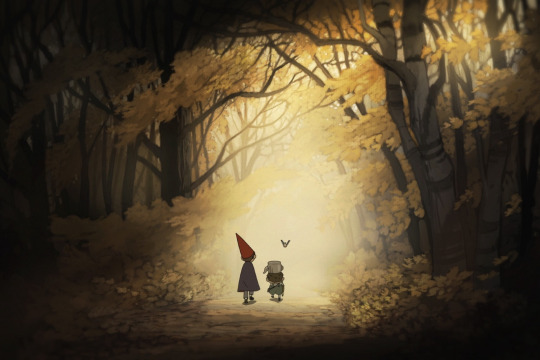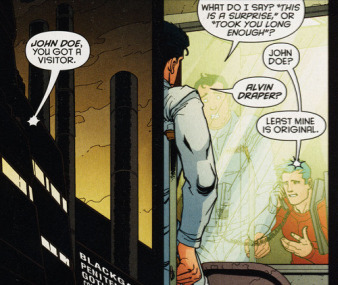#word play
Text

1K notes
·
View notes
Text
Know why they're called disguises? Cause when someone's wearing one, no one knows who dis guys is!
450 notes
·
View notes
Text
"And these are your motives, my lord?"
"Do you think I have others?" said Lord Vetinari. "My motives, as ever, are entirely transparent."
Hughnon reflected that "entirely transparent" meant either that you could see right through them or that you couldn't see them at all.
Terry Pratchett, The Truth
#hughnon ridcully#havelock vetinari#the truth#discworld#terry pratchett#word play#other options#motives#motivation#character motivation#entirely transparent#see right through it
351 notes
·
View notes
Text
What Is That?

It's the Unknown!
#Am I first one to do this?#Over the Garden Wall#Meme#What is That? It's the Unknown#Word play#Willy Wonka Experience
114 notes
·
View notes
Text

A classic
#meme#amusing#funny#memes#hehe#the heavier#stoner humor#relatable memes#social media memes#word play#humor#joke#funny jokes#dad jokes#this is a joke#is joke#much jeok#very jkoe#t h e H e a v i e r#funny memes#best memes#dank memes#haha#lol#funny shit#snerk#lulz#made me laugh#funny things
122 notes
·
View notes
Text
Jason Referencing His Death In His Cover Stories


#dc#dc comics#comics#comic books#robin comics#robin 1993#red hood outlaw#prince of gotham#comic pages#comic panels#parallels#character analysis#character appreciation#jason todd#red hood#the red hood#jason peter todd#batfam#batfamily#batkids#character dialogue#media analysis#comic analysis#funny#humor#word play#jokes#wordplay#death in the family#ditft
88 notes
·
View notes
Text
Being Kind To One Another
So I was watching through S1 again the other day for something, and you know how little things stand out to you that sometimes you didn't notice before. Like word puns that just fly past so quickly. Then one day the meta-brain inside suddenly goes "wait-wot! That was a repeated word!" and leaps upon it. yeah, you don't ignore stuff that in Good Omens.
So what did I hear repeated?
Kind.
One word. Three meanings.
Oh, come now, we can't just have one or two meanings with it. This is Good Omens, after all. The more that can be stuffed into it the better. And all of it works.
To start, we have the pun with the goats in the Flood scene, during the cold opening of Ep3, Hard Times.


Kids. Children. You can't kill children. Yep. Just warming you up here. Actually, its a bit of a theme in Good Omens, avoiding the slaughter of innocents, but we are getting a bit off track. Here is next bit:

[And because I cannot find the GIF to go with it] Crowley replies sarcastically:
"How kind."
oh. Oh. Geddit? No? Well, you might be excused, because it's actually doing a cross-over job with the next time period scene, at Golgotha, and it's one of those puns that you can really only understand going backwards.
On the one hand, we have the German meaning for kind which is "child," but we also need to introduce the third meaning for kind.
Remember this exchange?



We can take the kind here to be "thoughtful and caring," but you could also use another meaning for kind - as in like kind, or all belonging together, as in a family. So, be like family to each other.
Oh, yeah. Considering how some families are to each other that would definitely get some people upset.
Please, won't you consider the children?
I explain the other pun with the demon names here.
#good omens#good omens meta#crowley#aziraphale#not the kids#be kind to one another#just punning around#word play#language stuff
71 notes
·
View notes
Text
Dick from a girl call that Venus penus
#thirsting over nonop trans girls again#ftm4mtf#trans women ily#shitpost#serious shitpost#hornyposting#girldick#word play#play on words#humor#trans jokes#anoutherposting
242 notes
·
View notes
Text

cat-bee from poppy playtime
cat-bee: bee pawsitive!
#art mine#2023 art mine#digital art#shapeshiftinterest#games#poppy playtime#cat bee#cats#animals#bees#bugs#word play#was a little worried i should have only used 1 pun instead of 2 but it's fine#she's 2 diff things#she can have 2 puns if she wants
123 notes
·
View notes
Photo

le Congrès de Vienne ne marche pas, il danse.
- Napoleon Bonaparte
#bonaparte#napoleon#napoleon bonaparte#quote#dance#louvre#congress of vienna#european history#politics#europe#art#beyonce#dancing#dancer#pun#word play
163 notes
·
View notes
Text
"But since you raise the subject, Moist, what were you doing with your life before the citizens of Ankh-Morpork greeted you with open palms?"
"Surviving," said Moist. "In Uberwald the old empire was breaking up. It was not unusual for a government to change twice over lunch. I worked at anything I could to make a living. By the way, I think you meant 'arms' back there."
"And when you got here you impressed the gods so much that they led you to a treasure trove so that you could rebuild our post office."
"I'm very humble about that," said Moist, trying to look it.
Terry Pratchett, Making Money
#moist von lipwig#sacharissa cripslock#making money#discworld#terry pratchett#con man#journalist#going postal#backstory#plot summary#ankh morpork#uberwald#politics#surviving#government work#impressive#gods#divine intervention#word play#with open palms#very humble about that
130 notes
·
View notes
Text
"Burr, when you see Hamilton, thank him for the endorsement."
Aaron, are you Alexander's letters to Eliza?
Because you just got burrnt!
#broadway#hamilton#alexander hamilton#hamilton an american musical#hamilton the musical#hamilton memes#lin manuel miranda#burn#eliza schuyler#elizabeth schuyler#aaron burr#thomas jefferson#the election of 1800#daveed diggs#phillipa soo#leslie odom jr#james madison#okieriete onaodowan#word play#musicals
101 notes
·
View notes
Text
“The Greek word for "return" is nostos. Algos means "suffering." So nostalgia is the suffering caused by an unappeased yearning to return. To express that fundamental notion most Europeans can utilize a word derived from the Greek (nostalgia, nostalgie) as well as other words with roots in their national languages: añoranza, say the Spaniards; saudade, say the Portuguese. In each language these words have a different semantic nuance. Often they mean only the sadness caused by the impossibility of returning to one's country: a longing for country, for home. What in English is called "homesickness." Or in German: Heimweh. In Dutch: heimwee. But this reduces that great notion to just its spatial element. One of the oldest European languages, Icelandic (like English) makes a distinction between two terms: söknuour: nostalgia in its general sense; and heimprá: longing for the homeland. Czechs have the Greek-derived nostalgie as well as their own noun, stesk, and their own verb; the most moving, Czech expression of love: styska se mi po tobe ("I yearn for you," "I'm nostalgic for you"; "I cannot bear the pain of your absence"). In Spanish añoranza comes from the verb añorar (to feel nostalgia), which comes from the Catalan enyorar, itself derived from the Latin word ignorare (to be unaware of, not know, not experience; to lack or miss), In that etymological light nostalgia seems something like the pain of ignorance, of not knowing. You are far away, and I don't know what has become of you. My country is far away, and I don't know what is happening there. Certain languages have problems with nostalgia: the French can only express it by the noun from the Greek root, and have no verb for it; they can say Je m'ennuie de toi (I miss you), but the word s'ennuyer is weak, cold -- anyhow too light for so grave a feeling. The Germans rarely use the Greek-derived term Nostalgie, and tend to say Sehnsucht in speaking of the desire for an absent thing. But Sehnsucht can refer both to something that has existed and to something that has never existed (a new adventure), and therefore it does not necessarily imply the nostos idea; to include in Sehnsucht the obsession with returning would require adding a complementary phrase: Sehnsucht nach der Vergangenheit, nach der verlorenen Kindheit, nach der ersten Liebe (longing for the past, for lost childhood, for a first love).”
― Milan Kundera, Ignorance
#milan kundera#milan kundera quote#quote#quotes#nostalgia#nostalgic#ignorance#milan kundera ignorance#quotations#book quotes#book quote#book quotations#literature#etymology#word origins#longing#word play#yearning#word#words#word meaning#meaning#nostalgia meaning
47 notes
·
View notes


